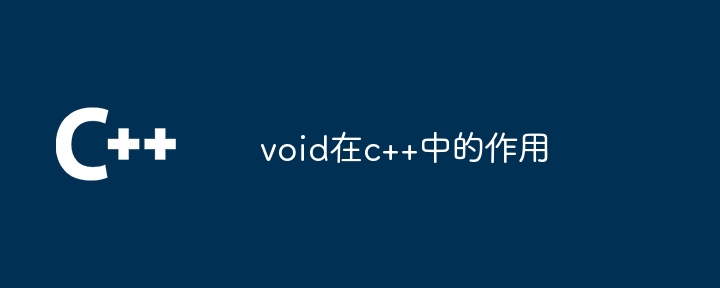Home >Backend Development >C++ >The role of void in c++
The role of void in c++
- 下次还敢Original
- 2024-05-06 18:03:15921browse
void in C means that a function or method has no return value or parameters. Specifically: a function return type of void means it does not return any value. The function parameter type is void, which means there are no parameters. void* represents a pointer to an object of any type. A template function or method can use void as a parameter or return value type, making it compatible with any type. void can be used to define macros, which are expanded during the preprocessing phase.

The role of void in C
In C, void is a special type modifier. Represents a function or method that has no return value or parameters.
void in functions and methods
When used as the return type of a function or method, void means that the function returns no value. For example:
<code class="cpp">void printHello() {
cout << "Hello, world!" << endl;
}</code>
void in parameters
When used as a parameter type, void indicates that the function or method has no parameters. For example:
<code class="cpp">void printMessage(void) {
cout << "This function has no parameters." << endl;
}</code>
Special uses
In addition to these basic usages, void is also used in some special situations:
- Pointer with no return value or parameters: void* represents a pointer to an object of any type.
- Generic function or method: A template function or method can use void as a parameter or return value type to make it compatible with any type.
- Macro definition: In C, void can be used to define macros, which is expanded during the preprocessing phase.
Advantages
The benefits of using void include:
- Explicitly indicating no return value or parameters:It clearly indicates that the function or method has no return value or parameters.
- Improve readability: Seeing void in a function declaration can help readers quickly understand the function's function.
- Improve maintainability: Adding void to the declaration can prevent unexpected errors if the return value or parameters are no longer needed by the function.
The above is the detailed content of The role of void in c++. For more information, please follow other related articles on the PHP Chinese website!

